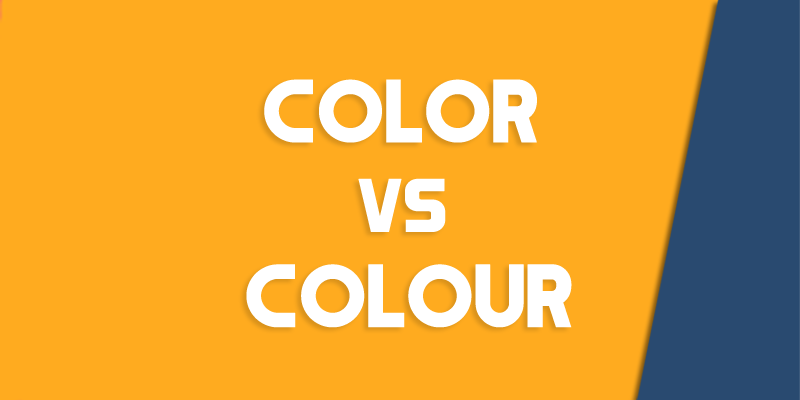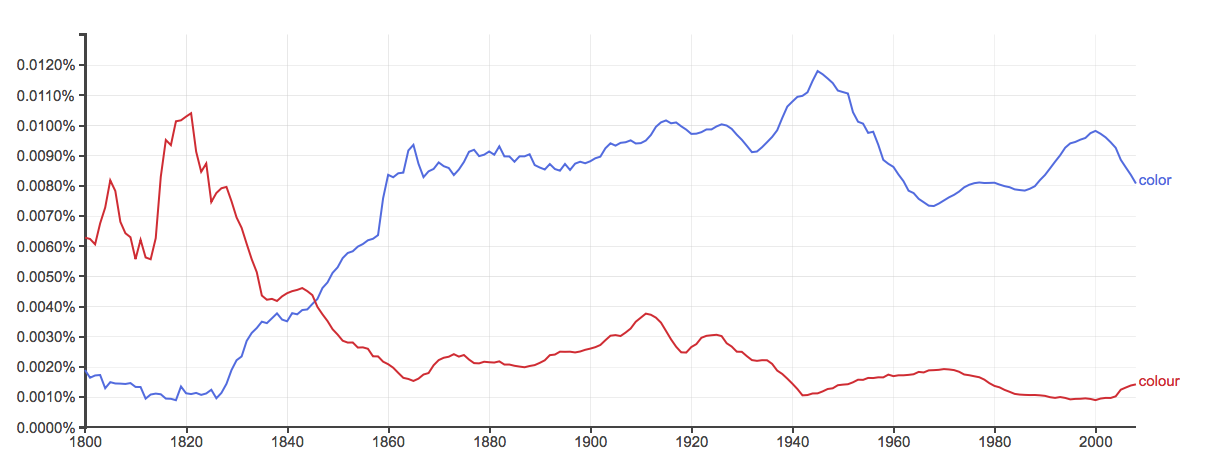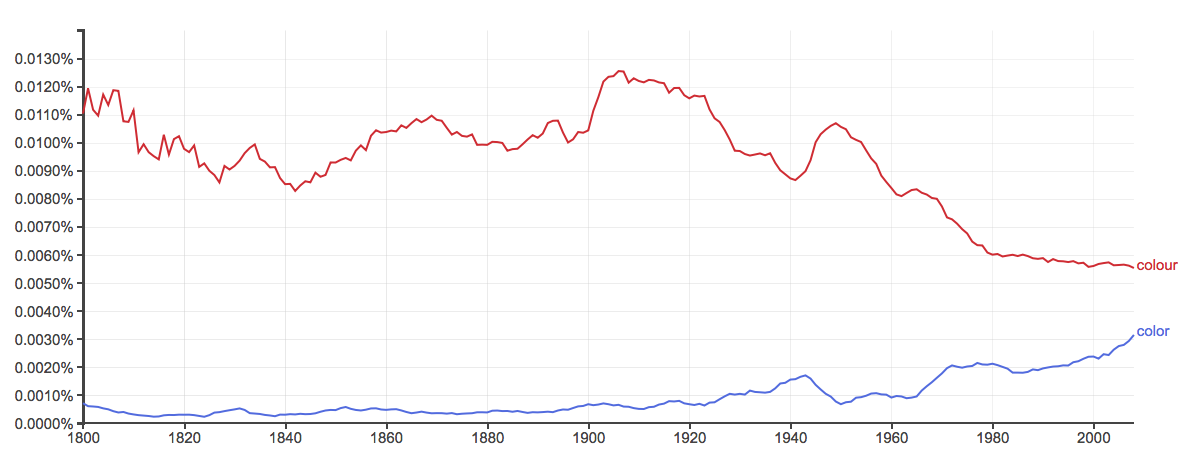Color vs. Colour – What’s the Gist?
The words color and colour are spelled differently but are pronounced the same. They function as nouns and verbs with nuances found in both parts of speech.
As nouns, they have the following meanings:
- A phenomenon of light or visual perception to distinguish objects.
- A description of objects based on hue, brightness, or saturation.
- A description for someone’s character or nature
As verbs, they reflect the following denotations:
- To give or change color
- To gloss over or to distort the truth
- To take on color as to blush
Despite not having any difference in meaning, that isn’t to suggest that these two words are necessarily interchangeable. They’re not really.

How to Use Color in a Sentence
The reason these words are definitionally the same but spelled another way is because they reflect regional differences. The spelling without the letter u is the American version while inserting the u makes the British spelling. Therefore, you need to keep the audience in mind when choosing whichever spelling.
As mentioned, spelling color by using the phonogram –or reflects the American English spelling. That means if your audience lives on the west “side of the pond,” use this version in your writing. The following graph will give you the visual.

As you can see, if you graph both spellings of the word, American publications use the version color much more frequently than colour after the early 1800s. No doubt, this earlier spelling was likely because of the influence of being a former British colony.
Another interesting tidbit about the word color is that it is a loanword taken from Latin. This lexical term means the word was accepted into the adoptive language as written without any changes. As such, this loanword may give the American spelling a bit more credence.
How to Use Colour in a Sentence
On the other hand, the British use the phonogram –our to spell colour. Many other British words use this phonogram as well: behaviour, honour, neighbour, rumour, all revealing a truly British flavor. Or make that flavour.
Keep this spelling of colour in mind should you find yourself writing for any of the countries that use British English as their language for publications. The following graph shows the spelling usage in books written in British books.

As you can see, the spelling colour continues in popularity in Britain. However, color has been gaining ground in recent years. In any case, the Brits consistently use the phonogram –our to spell colour today.
What About Other Derivations of These Words?
The spelling distinction does carry over to other derivatives of the word color/colour, including colored/coloured, colorable/colourable and colorful/colourful.
Additionally, as noted earlier, color also functions as a verb.
For example:
- He colored the truth to entertain his friends with his story.
- Her cheeks colored when she was given a compliment.
Outside Examples of Color vs. Colour
- Permanent hair color is specially formulated to deposit dye that lasts for weeks without fading. In fact, many boxes come with pre-treatment products as well as post-color conditioner to maximize results. –Chicago Tribune
- Jenny Dina Kirschner, an interior designer in New York, recently painted the cabinets pink for a client in Long Island, giving the room a decidedly ’80s vibe somewhere between mauve and millennial pink. The color picked up the pinkish tones in the Calacatta Vagli marble countertop. “We’re starting to see more daring use of color,” Ms. Kirschner said. “It’s a rebellion against the white kitchen.” –Houston Chronicle
- The blotches multiply until a whole shimmering spectrum of colour zigzags across my field of vision until it completely blinds me. My passivity is replaced by blind panic. Have I been drugged? Am I having a stroke? I ask myself as I feel my way to my local A&E. By the time a doctor sees me, the spectrum has faded, and I can see. The doctor tells me that my vital signs are normal and that I probably had a migraine. –The Guardian
- Now scientists have proven that extreme stress really can make the hair turn grey, by turning-off the pigment-regenerating stem cells which colour follicles. –The Telegraph
How to Remember These Words
To help you distinguish between the two versions of color/colour, think of the letter u found in the British version of colour. This same letter is found in the youngest royal’s name, Prince Louis. It is likely that when he learns to write the word colour, he’ll be instructed to add the u.
Article Summary
Is color or colour correct? While the meanings of these words are exactly the same, you need to remember how to spell these words based on the dialectical differences of your reading audience.
- Color without the letter u is used in American English.
- Colour with the letter u is used in British English.
